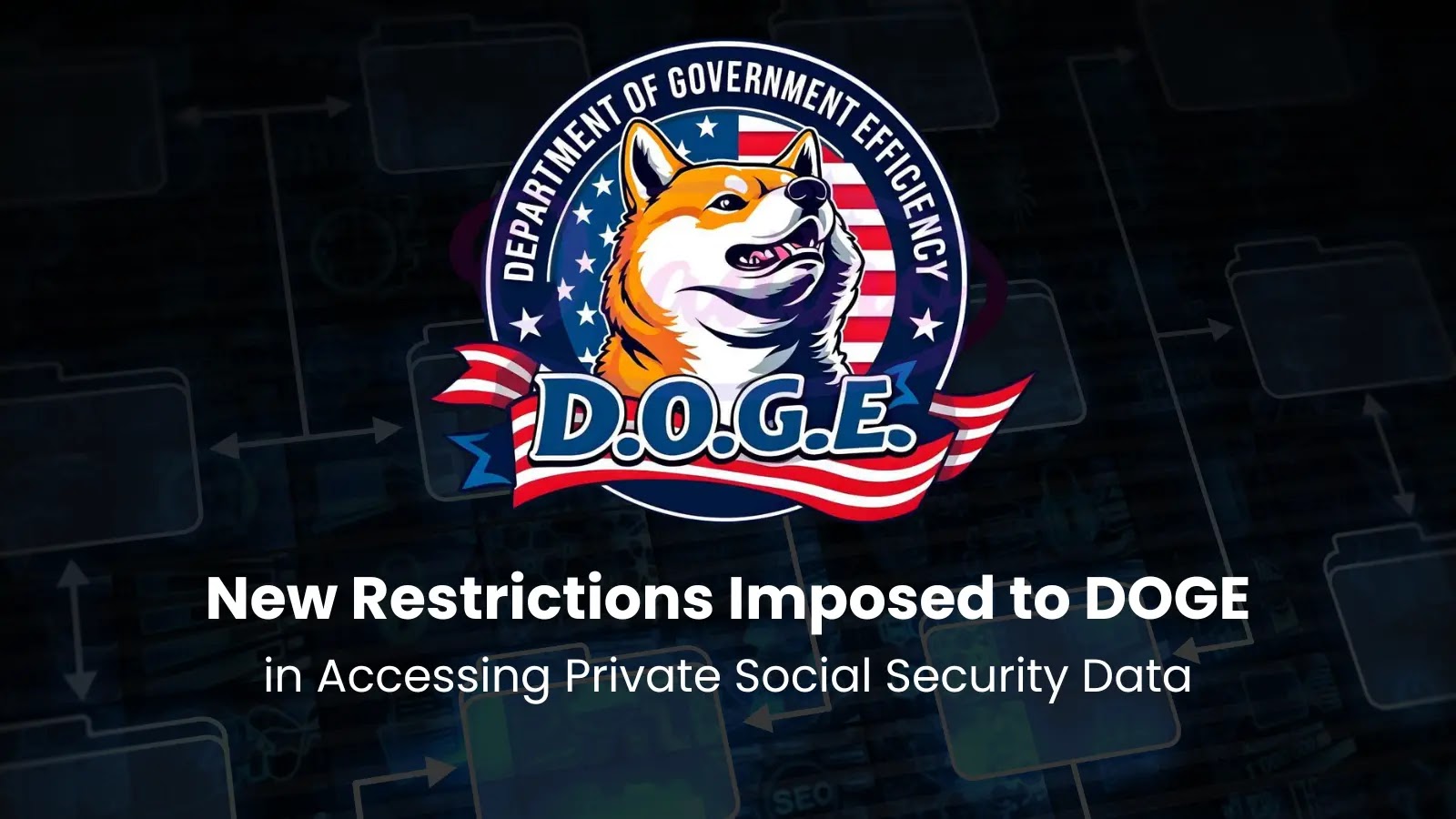In a significant legal development, a federal judge has imposed stringent limitations on the Department of Government Efficiency’s (DOGE) access to sensitive data held by the Social Security Administration (SSA). This ruling underscores escalating concerns over privacy and data security within federal operations.
On April 17, 2025, U.S. District Judge Ellen Hollander issued a preliminary injunction that curtails DOGE’s ability to access private SSA data. The injunction permits DOGE staff to access only anonymized data, provided they undergo comprehensive background checks and specialized training. Additionally, the court mandated the immediate deletion of any non-anonymized data previously obtained and prohibited any tampering with or dissemination of SSA software or code. ([apnews.com](https://apnews.com/article/42f4a7639169bd70c9541901bad7e0fe?utm_source=openai))
This legal action stems from a lawsuit filed by labor unions and retirees who argued that DOGE’s unrestricted access to personal information violated privacy laws and posed significant security risks. The plaintiffs contended that such access could lead to unauthorized exposure of sensitive data, including medical and personal records, thereby infringing upon individuals’ privacy rights. ([apnews.com](https://apnews.com/article/42f4a7639169bd70c9541901bad7e0fe?utm_source=openai))
Judge Hollander’s ruling emphasized the necessity of balancing governmental efficiency initiatives with the imperative to protect citizens’ personal information. She stated that while efforts to combat fraud and waste are commendable, they must not come at the expense of privacy and security. The judge also highlighted that the SSA has long operated under a principle of privacy, and any deviation from this standard requires careful legal scrutiny. ([reuters.com](https://www.reuters.com/legal/judge-extends-ban-musks-doge-access-private-social-security-data-2025-04-18/?utm_source=openai))
The Department of Justice (DOJ) has indicated plans to appeal the decision, asserting that DOGE’s access to SSA data is essential for modernizing government operations and combating fraud. DOJ spokesperson Victoria Ramirez noted that the department believes DOGE’s data access falls within existing legal frameworks and is vital to the agency’s mission.
Privacy advocates have lauded the court’s decision as a significant victory for civil liberties. Marcus Thornton, director of the Digital Privacy Coalition, remarked that the ruling reaffirms the importance of safeguarding Americans’ personal information against unauthorized government access. He emphasized that efficiency initiatives should not compromise fundamental privacy rights.
The controversy surrounding DOGE’s access to sensitive data is not isolated to the SSA. In a related case, a federal judge in Manhattan extended a ban on DOGE’s access to sensitive Treasury Department information. This decision was influenced by concerns over cybersecurity and the potential risks associated with unauthorized access to financial data. Judge Jeannette A. Vargas issued a preliminary injunction, indicating that the ban may be lifted if DOGE members complete required cybersecurity training. ([apnews.com](https://apnews.com/article/be7ba2d3c111b4c26015088eceb05d64?utm_source=openai))
The American Civil Liberties Union (ACLU) has also raised alarms about DOGE’s activities, warning that the agency’s unchecked access to federal computer systems housing restricted data could violate federal laws and constitutional protections. The ACLU highlighted that unauthorized use of sensitive or personally identifiable data as part of efforts to purge the government of ideologically unaligned staff may constitute a violation of the Privacy Act and the Federal Information Security Modernization Act. ([wired.com](https://www.wired.com/story/aclu-doge-congress-musk-data/?utm_source=openai))
Cybersecurity experts have expressed concerns that DOGE’s actions could inadvertently expose critical systems to foreign adversaries. Bruce Schneier, a renowned security technologist, emphasized that unauthorized access and modifications to federal systems could lead to significant vulnerabilities, potentially allowing foreign intelligence organizations to exploit these weaknesses. He advocated for immediate steps to revoke unauthorized access, restore proper authentication protocols, and conduct thorough audits to assess and mitigate the damage. ([schneier.com](https://www.schneier.com/blog/archives/2025/02/doge-as-a-national.html?utm_source=openai))
The legal challenges faced by DOGE reflect a broader tension between efforts to streamline government operations and the imperative to protect individual privacy and national security. As these cases progress through the courts, they are likely to set important precedents regarding the limits of governmental authority in accessing and utilizing sensitive personal data.
In the interim, the SSA has been directed to implement enhanced security measures to prevent unauthorized access to its systems. This includes conducting comprehensive reviews of current access protocols and ensuring that all personnel with access to sensitive data are adequately trained and vetted. The agency is also collaborating with independent cybersecurity experts to identify and address potential vulnerabilities within its systems.
Congressional hearings on the matter are scheduled for the coming weeks, with several lawmakers calling for a complete review of DOGE’s operations and data access across all federal agencies. These hearings aim to assess the balance between governmental efficiency initiatives and the protection of citizens’ privacy rights.
As the situation unfolds, it remains to be seen how the courts will navigate the complex interplay between the government’s interest in efficiency and the fundamental rights to privacy and security. The outcomes of these legal battles will likely have far-reaching implications for the future of data access and privacy within federal operations.



